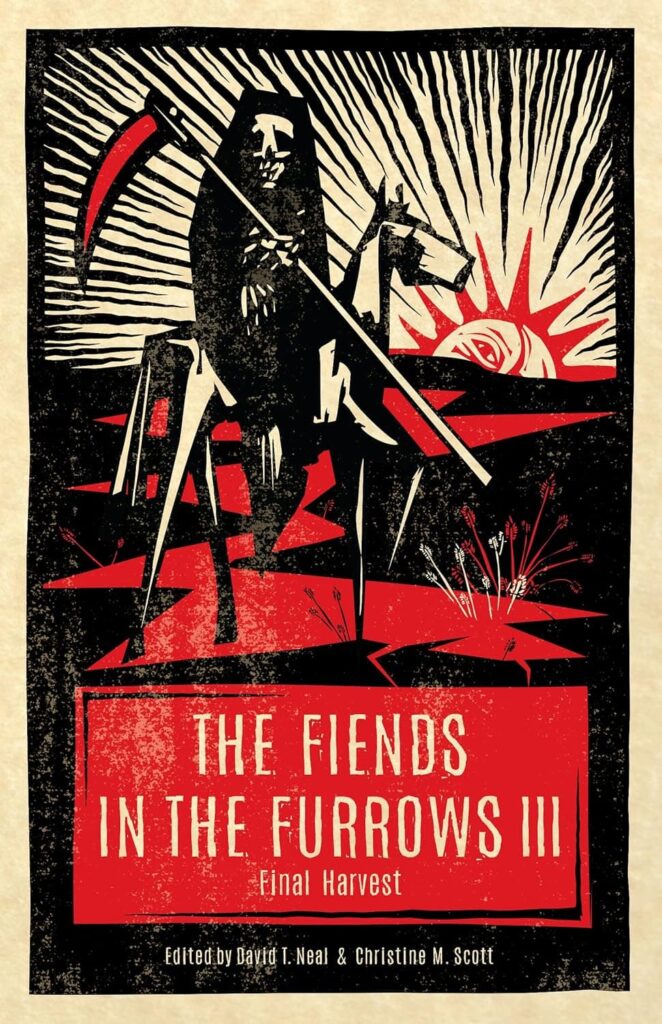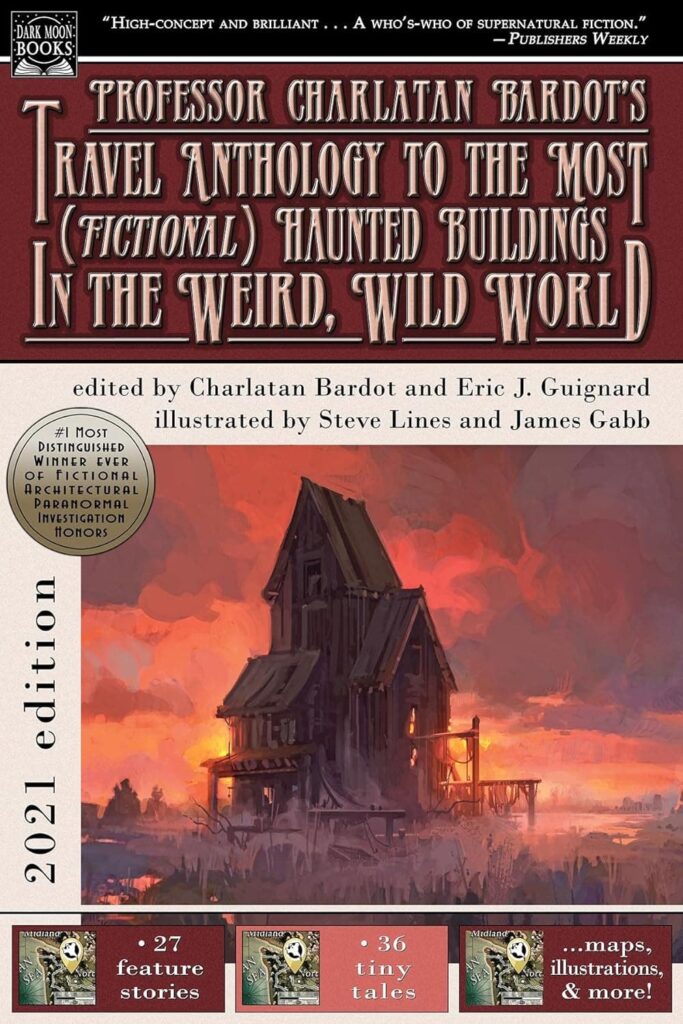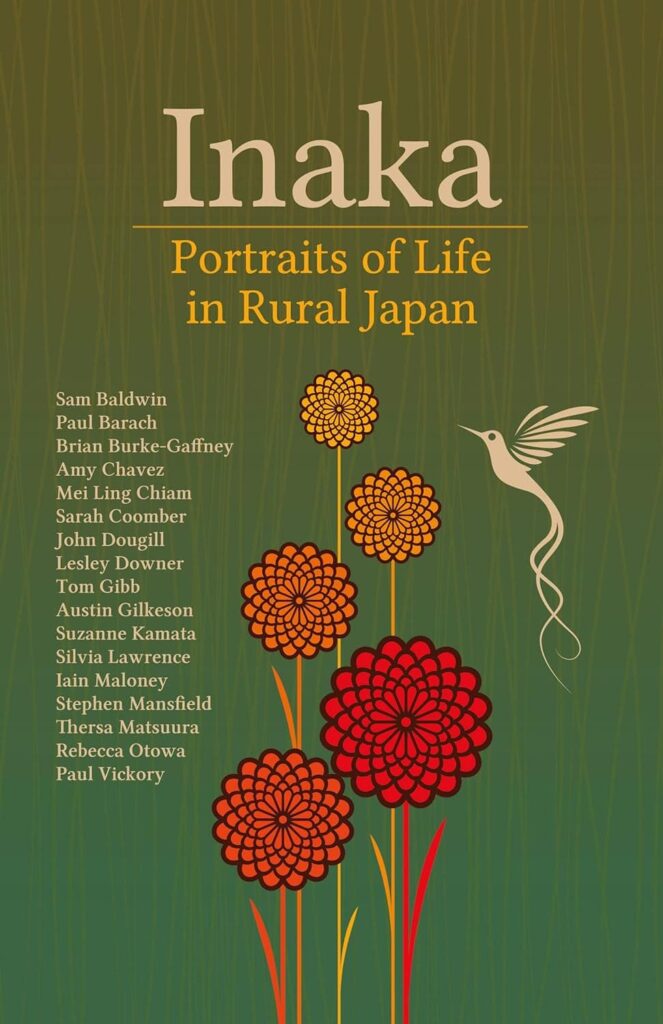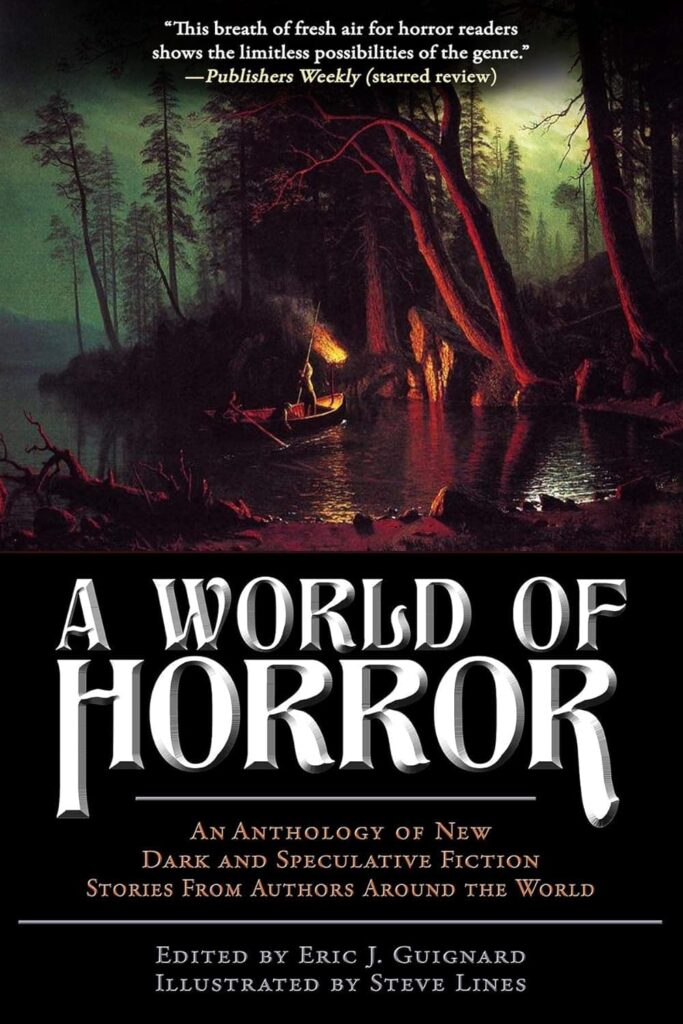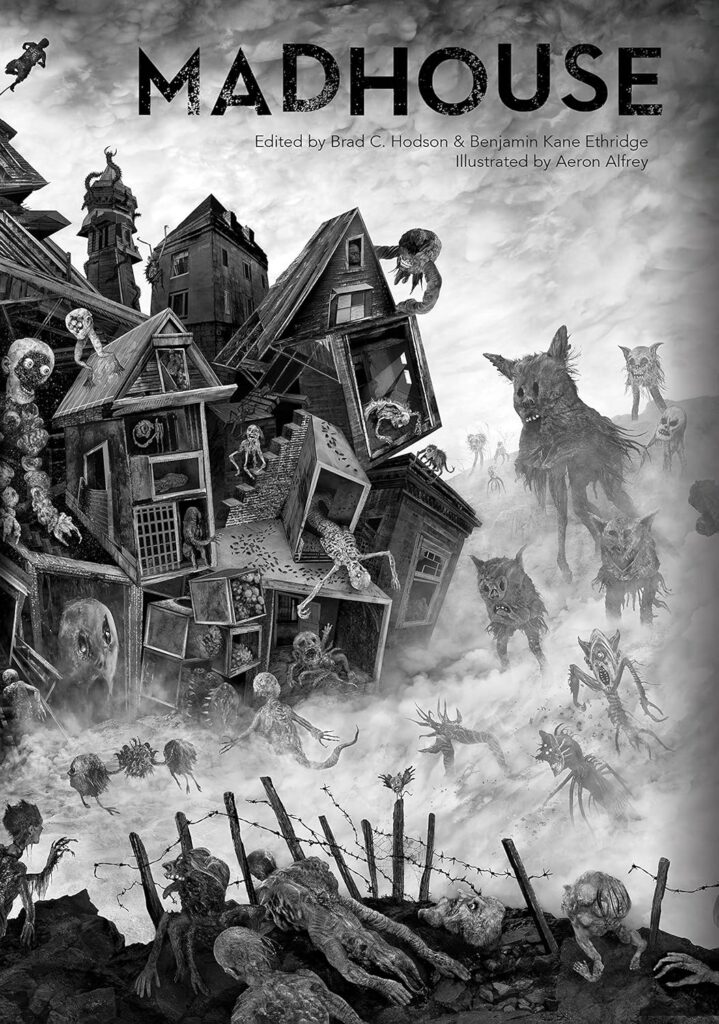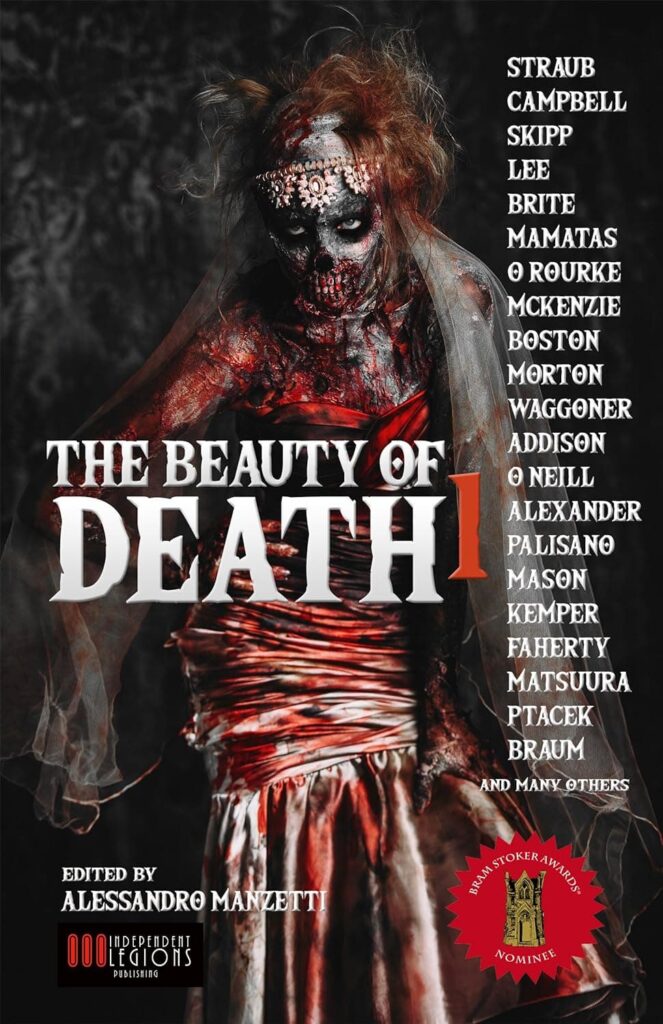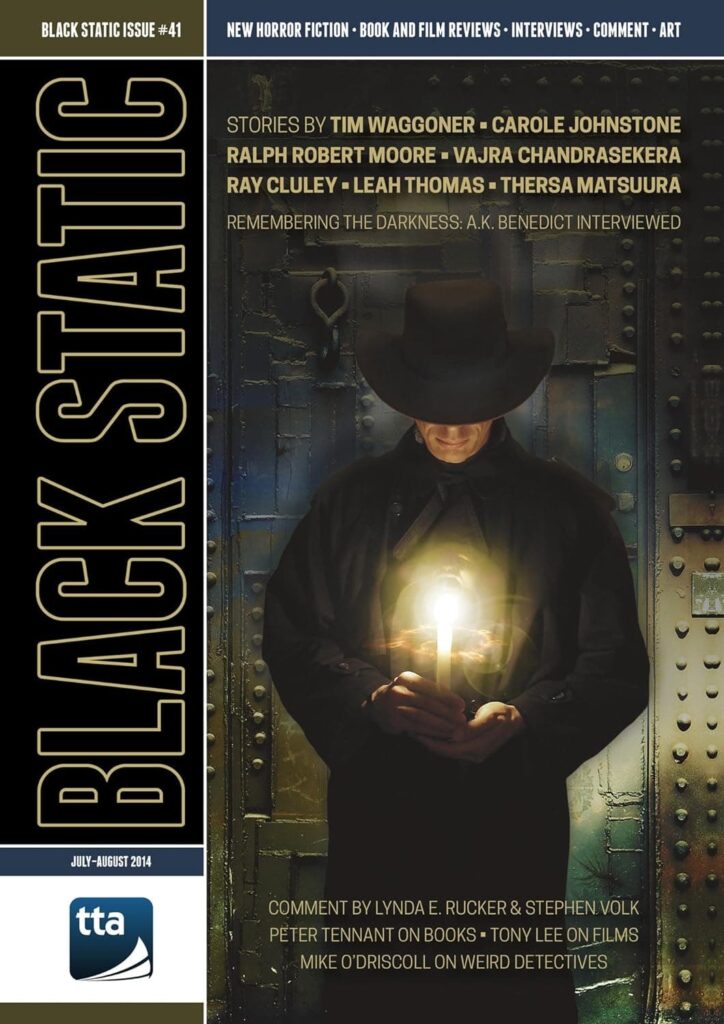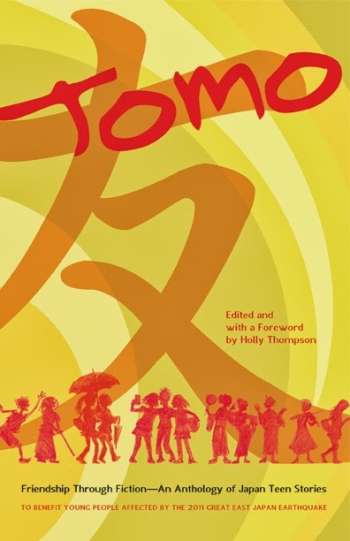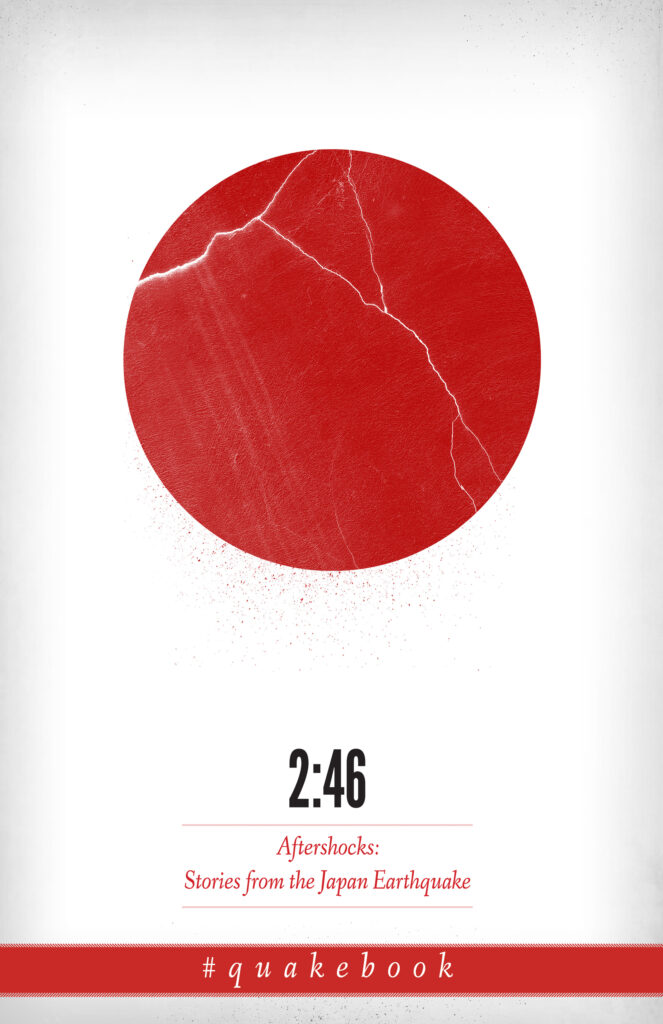Books
[Some of the links on the website are affiliate links (Amazon and others). This means if you click and purchase through them — at no cost to you — I will receive a small commission. This helps support me and my artistic endeavors. Thank you.]
The Book of Japanese Folklore: An Encyclopedia of the Spirits, Monsters, and Yokai of Japanese Myth
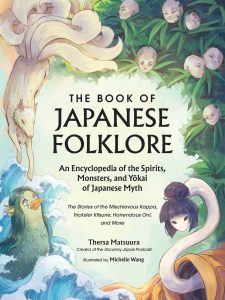
Welcome to The Book of Japanese Folklore: a fascinating journey through Japan’s folklore through profiles of the legendary creatures and beings who continue to live on in pop culture today.
From the sly kitsune to the ogreish oni and mischievous shape-shifting tanuki, learn all about the origins of these fantastical and mythical creatures. This gorgeous package is complete with stained edges and stunning four-color illustrations. With information on their cultural significance, a retelling of a popular tale tied to that particular yokai, and how it’s been spun into today’s popular culture, this handsome tome teaches you about the stories and histories of the beings that inspired characters in your favorite movies, animes, manga, and games.
Adventure, mystery, and amazing tales await in The Book of Japanese Folklore.
The Carp-Faced Boy and Other Tales
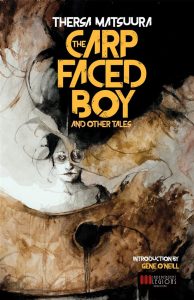
My second collection of short stories is straight up horror or maybe not. Reader Paul Biba labeled the stories: “I’m not sure I would call them “horror” in the traditional sense. More like dark fairy tales or myths.”
Another review from Patrick Sherriff:
“Musicals and horror. I don’t do either. At least, I didn’t think I did. Ultimately, I just can’t make the leap of faith to be scared by ghosts and supernatural beasties, in much the same way that I can’t take it when folk start singing and dancing in the middle of an otherwise perfectly believable scene in a diner. But after reading Matsuura’s well-crafted stories, I’m having to face the fact that, ahem, I might be wrong. Yes, there are Japanese-flavoured supernatural beasties in these stories: demons, witches, and monkey gods, but they are not in the stories to scare us. They are there to exact justice. Twisted, darkly humorous, unmelodic justice, but justice nonetheless. You don’t make a bargain with a tree witch and expect everything to come up roses, or buy an alien for ¥500 and not expect some payback, do you? And there’s more going on in these stories too. There are glimpses of Japan’s rural past, explorations of traditional morality, and modern immorality. Pervading all the stories is a deep understanding of Japanese and human nature, for better or for worse. The bottom line? Beautifully written, darkly humorous and deliciously Japanese. Musicals still suck though.”
The Robe of Feathers and Other Stories
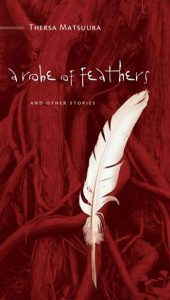
In my first collection of short stories I played with a genre I called mythical realism.
“In Japan, the line that divides myth from reality is not merely blurred, it is nonexistent. Superstitions, legends, and folk myths are passed down through generations and pervade daily living.
When a child playing near a river fails to return home, it is whispered that she was swept away by an adzuki arai, or Bean Washer. When a man boarding a ship hears the ringing of an unseen insect, it is announced that a funadama (Boat Spirit) is present and so the auspicious harbinger of smooth seas and abundant catch is celebrated. Even something as innocuous as waking up to find your pillow at the foot of your bed is thought to be the trick of a makura gaeshi, otherwise known as a Pillow Turner. Nothing is as simple as it seems. Your neighbor isn’t merely an eccentric old woman; she might very well be a shape-shifting, grudge-harboring Water Sprite.
The Japanese examine life and living with the keenest eyes and the most vivid of imaginations. Thersa Matsuura has captured that essence in
Audiobooks
The Book of Japanese Folklore: An Encyclopedia of the Spirits, Monsters, and Yokai of Japanese Myth
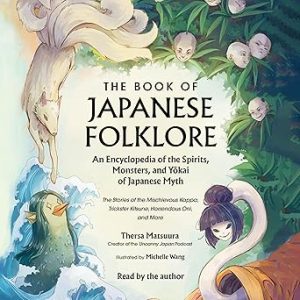
The Carp-Faced Boy and Other Tales
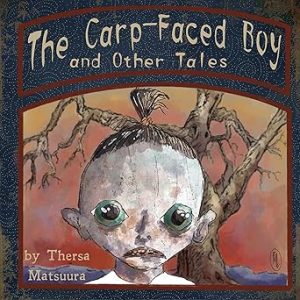
The Wife Who Didn’t Eat
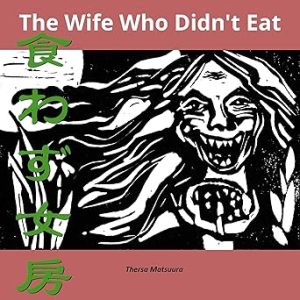
A farmer in old Japan prays to the gods for a wife, someone who is kind, beautiful, and hardworking. What would be even better is if she didn’t eat at all, saving him both money and food. Imagine his surprise when just such a woman shows up at his house one night.
But all is not perfect. The gods have quite the sense of humor, and the farmer soon learns what kind of monster he is living with. But is it too late?
“The Wife Who Didn’t Eat” is author Thersa Matsuura’s retelling of a classic horror-tinged Japanese folktale, “Kwazu Nyobo”. Here she reads her version of the story followed by a short commentary with some of her research notes and thoughts on the tale.
Both the short story and commentary come in at just under one hour.
Anthologies & Magazines
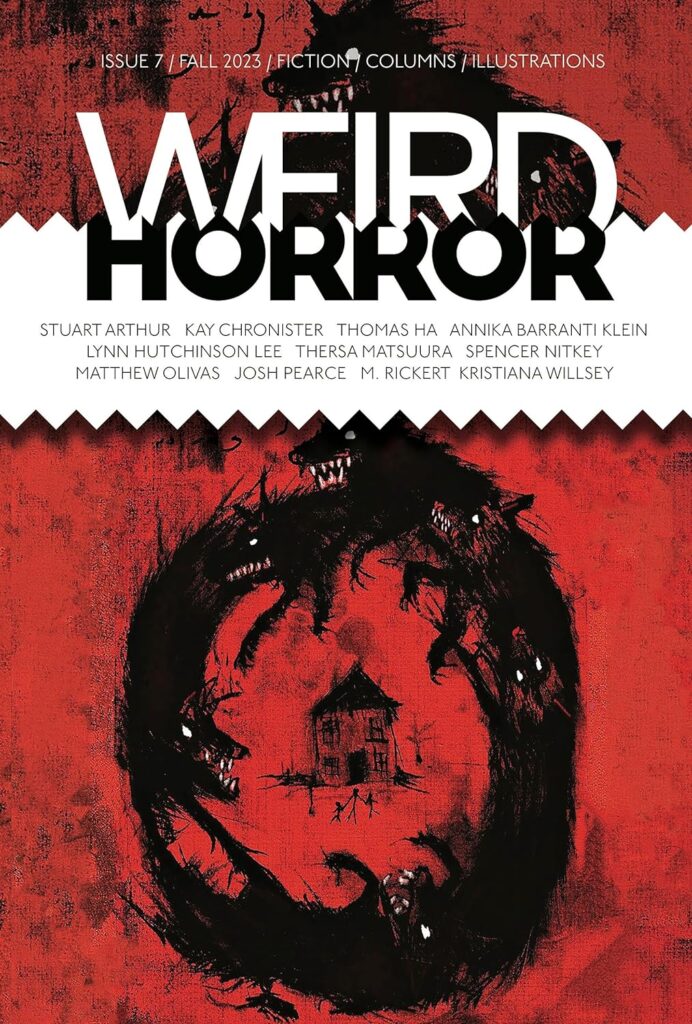
Weird Horror #7
(9/5/2023)
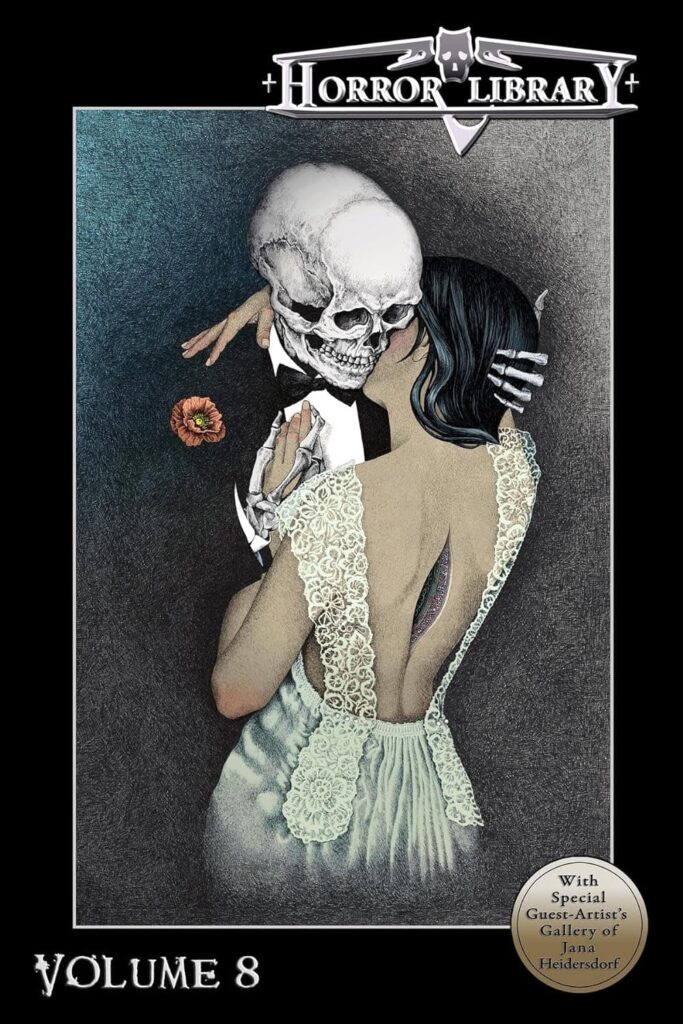
Horror Library
Volume 8
(7/25/2023)
